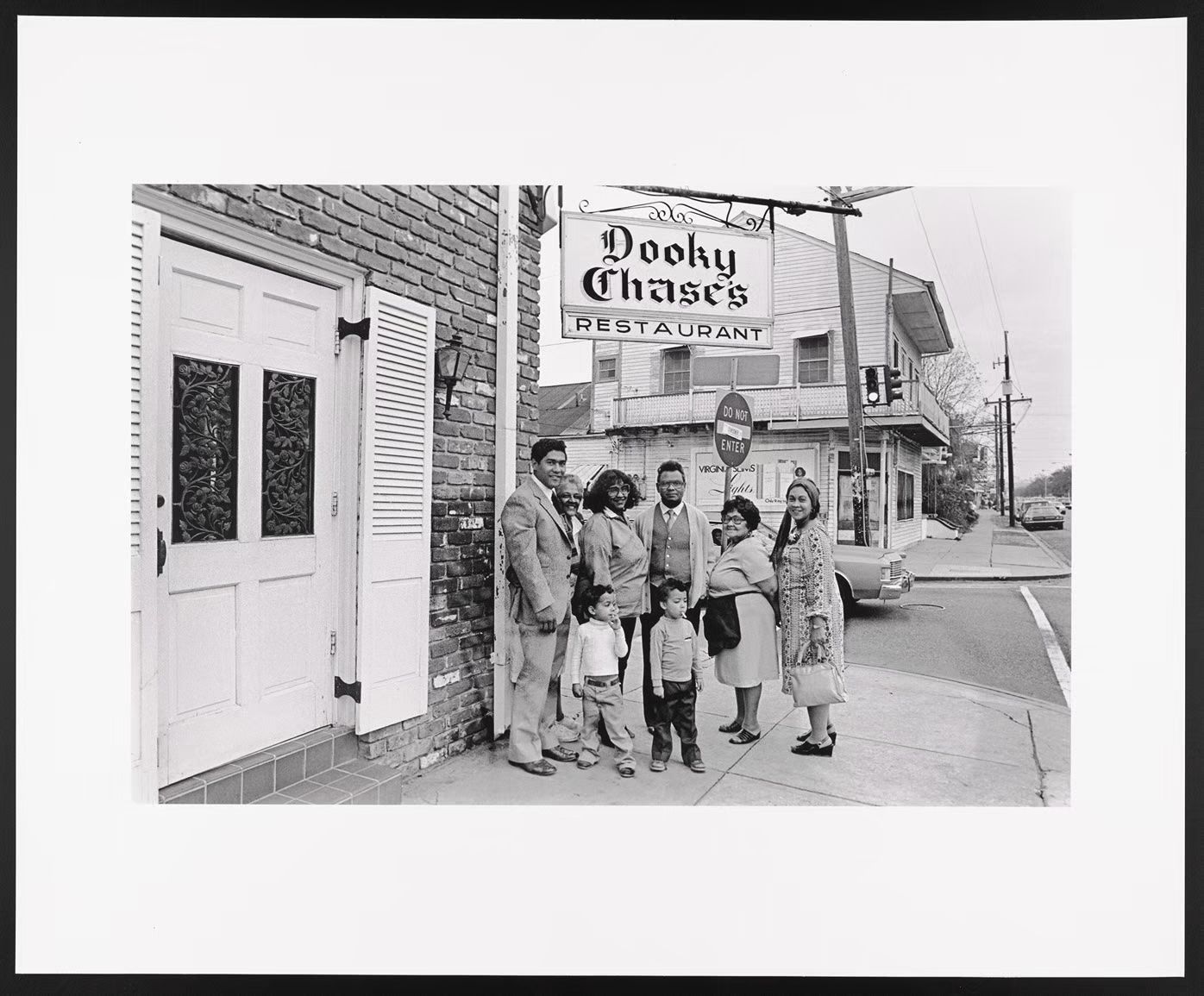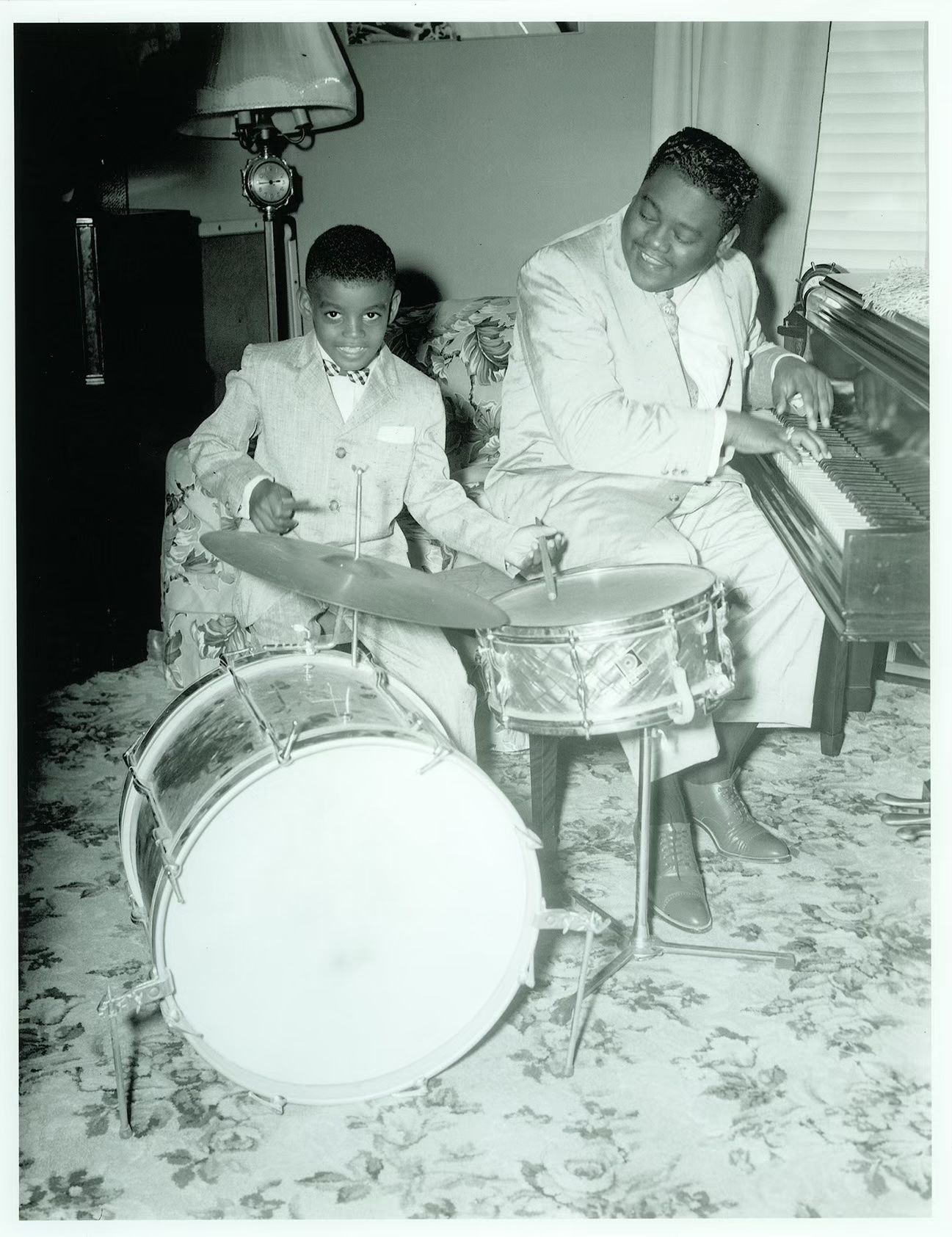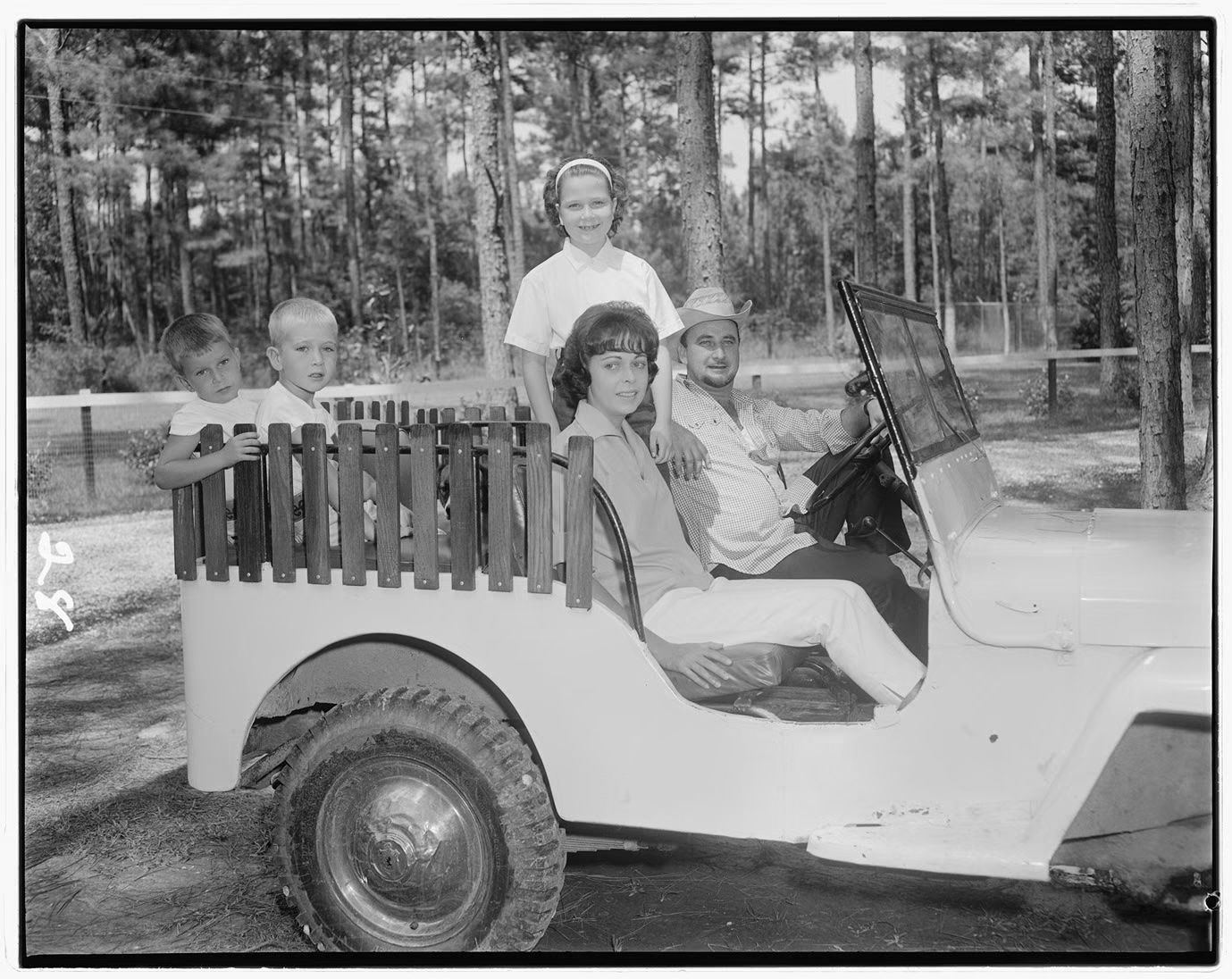Who's Your Daddy?
Remembering the Famous Dads of New Orleans Who Left a Lasting Cultural Impact on our City.
Father's Day is upon us, and while we might all have different ways of celebrating—be it with barbecue, a well-deserved nap, or a gift that doesn't involve another tie—it's the perfect time to reflect on the dads who helped shape our city.
From cultural icons to community leaders, New Orleans has a rich history of fathers who not only raised families but also left lasting marks on our culture. So, this Father's Day, we're asking the question: Who's your daddy? No, seriously. Who are the dads who helped make New Orleans the city we know and love today?
Let's take a moment to honor some iconic fathers who did it all: raised kids, changed history, and made us proud to call this place home. After all, what's more New Orleans than family, food, music, and a bit of good old-fashioned dad humor?
Edgar "Dooky" Chase Jr. (1928-2016)

Why did Dooky Chase bring a ladder to the restaurant? Because he wanted to take his cooking to new heights.
Edgar "Dooky" Chase Jr. was more than just the man behind Dooky Chase's Restaurant. He was a jazz musician, civil rights advocate, and cultural icon. As a teen, he led the Dooky Chase Orchestra and helped integrate New Orleans' music scene—even organizing one of the city's first racially mixed concerts.
In 1946, he married Leah Lange Chase, an icon in her own right, and, together, they transformed his family's Tremé restaurant into a fine-dining institution and a meeting place for civil rights leaders, including Martin Luther King Jr. and Thurgood Marshall. While Leah made history in the kitchen, Dooky Jr. was a force in business and labor rights, ensuring Black workers had a seat at the economic table.
His legacy lives on through his family and the still-thriving Dooky Chase's Restaurant—a place where history, food, and culture collide in true New Orleans fashion.
Fats Domino (1928-2017)

Why did Fats Domino bring a pencil to the piano? Because he wanted to draw a crowd.
Antoine "Fats" Domino wasn't just a rock 'n' roll pioneer—he was the heartbeat of New Orleans rhythm and blues. Born and raised in the Lower Ninth Ward, his rolling piano style and smooth vocals turned hits, including "Blueberry Hill" and "Ain't That a Shame," into American classics.
But beyond the music, Fats was a devoted father of eight, balancing chart-topping fame with a deep love for family and home. Even at the height of his success, he stayed rooted in New Orleans, cooking for friends and neighbors and keeping his doors open to the community.
When Hurricane Katrina loomed and would devastate our beloved city, he refused to abandon the place he loved. Fans feared the worst, until he was found safe. His resilience became a symbol of the city's spirit, and he later performed at benefit concerts to help rebuild New Orleans. President George W. Bush honored him with a replacement National Medal of Arts in 2006 after the original was lost in the flood.
Fats Domino's legacy isn't just in the music—it's in the soul of New Orleans itself, where his boogie-woogie spirit still lingers.
Pete Fountain (1930-2016)

Why did Pete Fountain bring his clarinet to the party? Because he knew how to blow everyone away.
Pete Fountain was New Orleans' jazz clarinet legend—a man whose smooth, lilting melodies became the soundtrack of the city. Born and raised in the Crescent City, Fountain's mastery of the clarinet made him a star both at home and beyond. Whether playing in the jazz clubs of Bourbon Street or performing for national television audiences, his signature sound became synonymous with New Orleans jazz.
A father and family man, Fountain balanced his busy career with a love for his hometown. His performances brought New Orleans jazz to the world, but he always stayed grounded in the local music scene, working with everyone from Louis Armstrong to Frank Sinatra.
Fountain's influence is still felt today in the vibrant jazz culture of New Orleans. With every note he played, he kept the heart of the city alive, leaving behind a legacy that continues to inspire musicians and fans alike.
Allison "Tootie" Montana (1922-2005)
Why did Tootie Montana always wear such flashy suits? Because he believed in "beading" a good impression.
Allison "Tootie" Montana was the Big Chief of the Yellow Pocahontas Mardi Gras Indians for over 50 years, shaping the Black masking Indian tradition into the vibrant, artistic celebration it is today. Born and raised in New Orleans, Tootie learned to sew his first suit as a child, carrying on his family's legacy.
Known for his elaborate, beaded, and feathered suits, Tootie shifted the focus of Mardi Gras Indians from conflict to pageantry, creating a sense of pride and community. His artistry elevated the cultural significance of the Indians, making their parades one of the city's most anticipated events.
Tootie was also a family man, passing down the leadership of the tribe to his son Darryl in the late '90s. His legacy lives on in the colorful traditions and deep pride of New Orleans' Mardi Gras Indian culture.
For the Dads
While the dads we've highlighted might not be with us today, their legacies are alive and well in the streets, music, food, and culture of New Orleans. They taught us that being a dad isn't just about providing. It's also about leading by example, making a difference, and, sometimes, just being there to share a laugh, even if it's at the expense of bad dad jokes.
So as you kick back and enjoy your Father's Day, remember that the fathers of this city have given us much more than great stories. They've given us a culture that celebrates life, love, and the importance of family. Here's to the dads who shaped New Orleans and to all the dads who continue to make an impact every day. Happy Father's Day.

